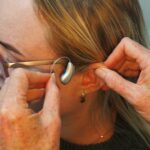Are you ready to finally separate fact from fiction when it comes to audiology? Look no further! In this article, we are diving headfirst into the world of hearing health to debunk some of the most common misconceptions surrounding audiology. As an experienced audiologist with a passion for demystifying auditory science, I am here to clarify the truths and dispel the myths that may have been clouding your understanding. So, buckle up and get ready to have your preconceived notions shattered as we embark on a journey of debunking audiology misconceptions!

Debunking Audiology Misconceptions
Misconceptions about audiology and hearing health continue to persist, leading to misinformation and a lack of understanding. It’s essential to debunk these misconceptions and provide accurate information to empower individuals to make informed decisions about their hearing health. In this article, we will address common misconceptions surrounding audiology and shed light on the truth behind them.
Misconception: Deafness and hearing loss are the same thing.
The reality is that deafness and hearing loss are not interchangeable terms. Deafness refers to a severe or profound hearing loss, where individuals may have difficulties understanding speech without the use of amplification or sign language. On the other hand, hearing loss is a broad spectrum that encompasses varying degrees of hearing difficulty. It’s crucial to understand that hearing loss exists on a continuum, and not all individuals with hearing loss are completely deaf.
“Deafness and hearing loss are not synonymous. It’s important to recognize the wide range of hearing difficulties individuals may experience.”
Misconception: Hearing aids can fully restore hearing to normal.
While hearing aids can greatly improve communication and enhance hearing, they cannot completely restore hearing to its normal state. Hearing aids amplify sound and make it easier for individuals with hearing loss to hear and understand conversations, but they cannot reverse or cure underlying hearing problems. It’s essential to have realistic expectations when it comes to the effectiveness of hearing aids and to understand that they are a valuable tool for managing hearing loss rather than a “cure-all” solution.
“Hearing aids enhance hearing, but it’s important to have realistic expectations and recognize their limitations in fully restoring hearing.”
Misconception: Hearing aids are only for older people.
Contrary to popular belief, hearing loss is not solely linked to aging. Approximately 40% of Americans with hearing loss are younger than 60 years old. Age-related hearing loss, known as presbycusis, is just one type of hearing loss, and there are many other causes, including exposure to loud noise, genetic factors, and medical conditions. It’s essential to recognize that hearing loss can affect people of all ages and that everyone, regardless of their age, deserves access to appropriate hearing healthcare.
“Hearing loss is not exclusive to older individuals. There are many different causes and factors that can contribute to hearing difficulties at any age.”
Misconception: Hearing aids are not effective or worth the cost.
There is a commonly held misconception that hearing aids are expensive and not worth the investment. However, hearing aids can significantly improve quality of life and enhance communication. While the initial cost of hearing aids may seem high, it’s crucial to consider the long-term benefits they provide. Additionally, advancements in technology have led to the development of more affordable and accessible options. It’s important to consult with an audiologist who can guide you in selecting the appropriate hearing aids based on your unique needs and budget.
“Hearing aids can greatly improve communication and quality of life. It’s important to consider their long-term benefits when assessing their value.”
Misconception: Hearing aids are one-size-fits-all.
Every individual’s hearing loss is unique, and their needs may vary. Choosing the right hearing aids requires a thorough assessment of individual circumstances. There are various styles and technology levels of hearing aids available, allowing for personalized solutions tailored to specific types and degrees of hearing loss. An audiologist can help determine the most suitable hearing aids that align with your lifestyle, preferences, and hearing requirements.
“Hearing aids should be chosen based on individual needs. There are numerous options available to cater to various types and degrees of hearing loss.”
Misconception: Hearing aids don’t work because someone I know didn’t find them helpful.
It’s essential to acknowledge that hearing aids may work differently for different individuals. Just because a family member, friend, or acquaintance did not find hearing aids helpful does not mean they won’t be effective for others. Hearing aids are highly personalized and require a comprehensive fitting process, which takes into account individual preferences, hearing loss characteristics, and communication needs. Therefore, it’s crucial not to make assumptions based on others’ experiences but rather to consult with an audiologist to determine the best solution for yourself.
“Hearing aids are tailored to individual needs, and their effectiveness varies from person to person. It’s important to consult with an audiologist to find the right fit for you.”
Misconception: Hearing damage only affects the ears.
Hearing damage can have broader impacts that extend beyond the ears. Untreated hearing loss has been linked to various health issues, including cognitive decline, social isolation, and an increased risk of falls. It’s vital to recognize that hearing health is integral to overall well-being. Taking proactive steps to address hearing loss, such as seeking appropriate treatment and using hearing aids when necessary, can lead to improved overall health outcomes.
“Hearing damage can have far-reaching consequences, affecting cognitive function, social interactions, and overall well-being. Prioritizing hearing health is essential for maintaining a high quality of life.”
By debunking these common misconceptions, we can foster a better understanding of audiology and hearing health. It’s important to rely on accurate information and consult with professionals to make well-informed decisions about hearing care. Remember, everyone’s hearing journey is unique, and through education and awareness, we can ensure individuals have the necessary tools and resources to advocate for their hearing health.
Are you ready to dive into the fascinating world of audiology? If you’re curious about the intriguing field of hearing and sound, we’ve got just the thing for you. Click here to uncover some mind-blowing Audiology Fun Facts that will leave you amazed and wanting to learn more. Don’t miss out, click this link and prepare to be captivated: Audiology Fun Facts.
FAQ
Question 1
What are some common misconceptions about audiology?
Answer 1
There are several common misconceptions about audiology. One misconception is that hearing loss is only linked to aging, when in fact, around 40% of Americans with hearing loss are younger than 60 years old. Another misconception is that hearing aids can fully restore hearing to normal, but they actually improve communication and do not completely restore hearing. It is also a misconception that hearing aids are not effective or worth the cost, when in reality, there are different styles and technology levels of hearing aids available that can greatly benefit individuals with hearing loss. Additionally, there are misconceptions about what speech-language pathologists do and the benefits of ear machines.
Question 2
Are hearing aids effective for everyone?
Answer 2
No, the effectiveness of hearing aids can vary depending on the individual’s hearing loss and needs. While hearing aids can significantly improve communication for most people with hearing loss, there is no one-size-fits-all solution. It is important to consider individual circumstances and consult with an audiologist to determine the most suitable hearing aids for specific needs. Just because a family member or friend did not find hearing aids helpful does not mean they won’t work for others. It is recommended to seek professional guidance to ensure the best outcome.
Question 3
What are the benefits of using two hearing aids instead of one?
Answer 3
Using two hearing aids instead of one offers several benefits. Firstly, it provides a more natural listening experience by allowing for balanced hearing. Our ears work together to locate sounds and process auditory information, and using two hearing aids helps to replicate this natural process. Additionally, wearing two hearing aids improves the ability to understand speech in noisy environments by enhancing speech clarity and reducing background noise. It provides a greater overall improvement in hearing and communication compared to relying on a single hearing aid.
Question 4
How can debunking audiology misconceptions help individuals?
Answer 4
Debunking common misconceptions about audiology helps individuals develop a clearer understanding of hearing loss and its impacts. It helps dispel false information or myths surrounding audiology, allowing individuals to make more informed decisions about their hearing health. By understanding the benefits of hearing aids, the different styles and technology levels available, and the importance of seeking professional help, individuals can take proactive steps towards better hearing health and improved communication. Debunking audiology misconceptions empowers individuals to overcome stigmas and seek appropriate interventions for their unique hearing needs.
Question 5
Why is it important to educate others about the importance of hearing health?
Answer 5
Educating others about the importance of hearing health is crucial because misconceptions about hearing damage can lead to false information and a lack of understanding. By raising awareness and providing accurate information, we can promote the significance of regular hearing screenings, the benefits of timely intervention, and the potential impact of untreated hearing loss on overall well-being. Additionally, educating others can help reduce the stigma around hearing loss and encourage individuals to take proactive steps towards preserving their hearing and seeking appropriate care when needed.
- China II Review: Delicious Food & Speedy Service - April 17, 2025
- Understand Virginia’s Flag: History & Debate - April 17, 2025
- Explore Long Island’s Map: Unique Regions & Insights - April 17, 2025
















